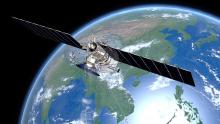Microorganisms to clean up environmental methane

Methane has a global warming impact 25 times higher than that of carbon dioxide and is the world's second most emitted greenhouse gas. An EU-funded project is developing new strains of microorganisms that can transform methane into useful and bio-friendly materials.








